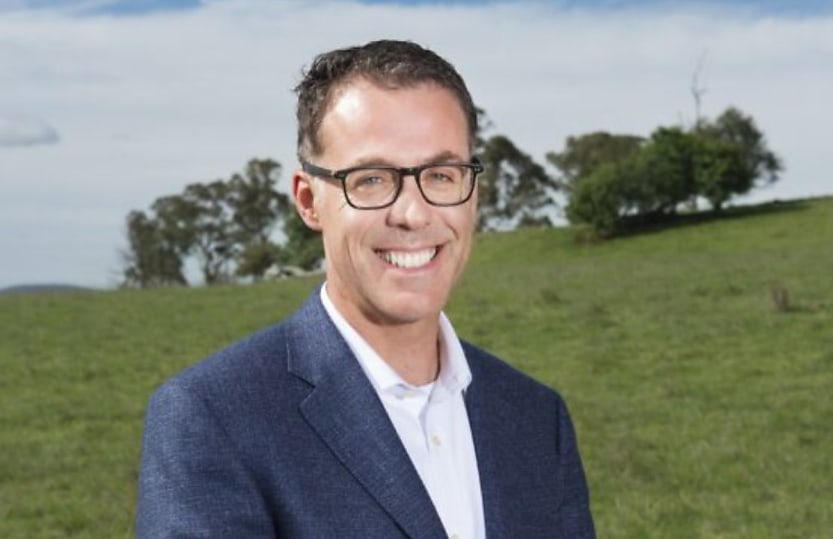El Niño, commodity prices depress farm confidence

A mix of price movements and seasonal conditions mean most farmers expect incomes to decrease and the economy to get worse, Rabobank survey reports.
Softer commodity prices and the threat of drought has taken the edge of farm confidence according to the latest Rabobank agribusiness survey, with more producers expecting conditions to get worse and incomes to fall this year.
It found a mixed picture across the nation, with an improved outlook of primary producers in NSW, South Australia and Queensland offsetting negative sentiment in Victoria, Western Australia and Tasmania.
The result was an improvement on Q3, which recorded the fourth lowest farm confidence level in the survey’s history, Rabobank said.
The latest survey found 14 per cent of farmers were expecting the agricultural economy to improve in the next 12 months, up from 10 per cent last quarter, while 27 per cent expected economic conditions to remain stable.
The key factors weighing down pessimistic views were worries about a softening of commodity prices and the spectre of drought from El Niño.
For those with a positive outlook, price expectations in the dairy and sugar sectors and good seasonal conditions were the main drivers of confidence.
Overall, a majority of farmers – 55 per cent – anticipate economic conditions to get worse, an increase from 51 per cent in the previous quarter.
Rabobank group executive for Country Banking Australia, Marcel van Doremaele, said the result reflected the mixed seasonal conditions across the nation.
“The anticipated – and later declared – return to El Niño conditions had dampened spirits in our quarter three survey,” he said.
“Since then, climate-wise we’ve seen a range of conditions around the country with everything from severe bushfires to damaging summer storms, to heat events, to welcome rain for some areas offset by ongoing dry conditions elsewhere.
“Western Australian, Victorian and Tasmanian farmers, in particular, are assessing the fallout of a very dry finish to spring. Many South Australian producers had a better-than-anticipated harvest result, although some did have to contend with late frosts and summer hailstorms, and now heavy early December rainfall.
“This was offset by a general lift in farmer confidence in NSW on the back of recent rainfall in central and northern parts of the state after a very dry run. Drought remains the chief concern in Queensland although there has been useful – albeit patchy – summer storms.”
Mr van Doremaele said the seasonal and market factors had worked in tandem to contribute to a forecasted drop in the value of Australian agriculture production for 2023–24.
“Drier conditions during the El Niño period will impact the record-high crop production levels seen in 2022–23, and Australian crop production values are expected to fall by $12 billion in 2023–24, according to ABARES. Livestock production values are also forecast to decline, based on recent market conditions.”
Income expectations are down across the board with just 11 per cent of farmers expecting an increase in the coming 12 months (down from 14 per cent in the previous quarter) and 66 per cent expecting incomes to decrease (from 54 per cent last survey).
“As production values fall, so do farm incomes, and we see this play out in farmers’ investment intentions,” Mr van Doremaele said.
The mixed picture came through in the outlook for commodity prices, with confidence in grain dropping and 43 per cent of growers expecting conditions to get worse.
After a tough run for Australia’s sheep producers, Mr van Doremaele said, confidence was shown to be starting to improve in the sector in the latest survey.
“We can thank rainfall events across the east coast for an improvement in markets as producers have more confidence to retain stock after a period of destocking,” he said.
“Wool producers also face a market which continues to stabilise against the bearish demand backdrop.”
The beef sector experienced a shift the other way, with confidence deteriorating after a considerable price decline over the year, albeit with a turnaround underway since November.
Despite strong milk prices, dairy farmers were more pessimistic this quarter, with more than half expecting conditions to worsen.
However, cotton growers were among the least optimistic with net confidence falling from 5 per cent last quarter to -38 per cent.
“Continued weakening global demand outlook for cotton, coupled with improvement in supply forecasts, have taken the spring out of the market that was seen in recent months,” Mr van Doremaele said.
Mr van Doremaele said the forecast drop in the value of Australian agriculture production for 2023–24 would see farmers continue to tighten their belts when it came to financial decisions, with more looking to decrease investment over the next year (29 per cent, down from 22 per cent last quarter).
“Farmers have been increasingly cautious on all spending – taking into account reduced incomes and seasonal conditions – and are focusing investment on essential activities, such as infrastructure and technologies, which will help drought-proof their businesses,” Mr van Doremaele said.
With reduced cash flow, an increasing number of farmers expect to borrow more in the coming year (30 per cent, up from 18 per cent).
The Rabobank Rural Confidence Survey questions an average of 1000 primary producers across a wide range of commodities and geographical areas throughout Australia every quarter.
About the author










